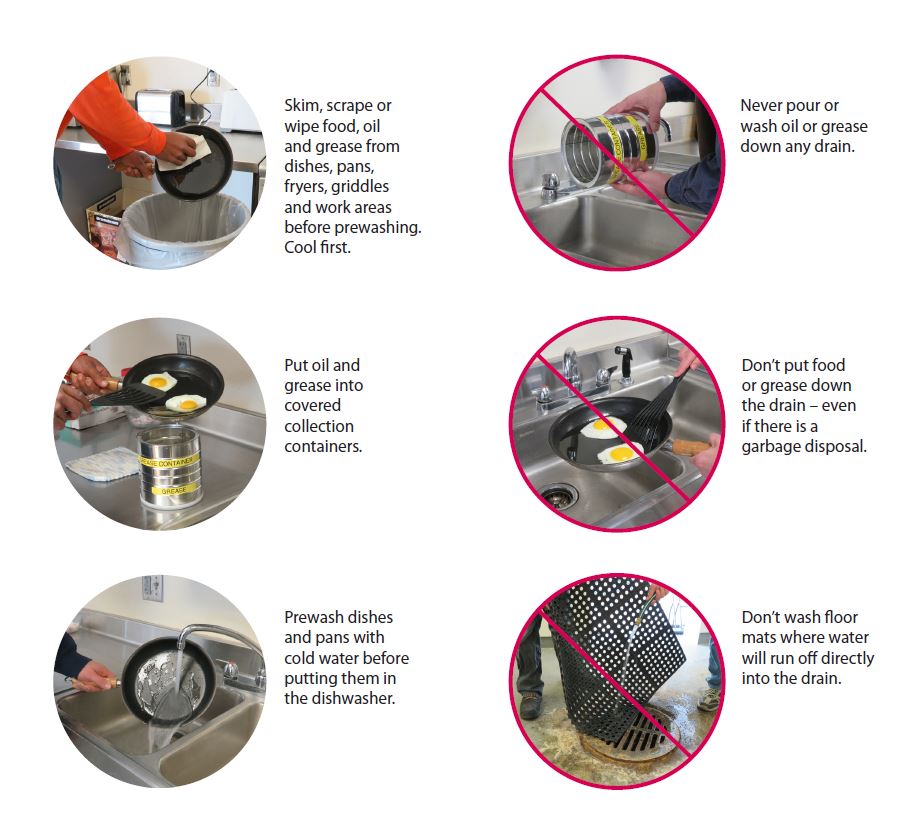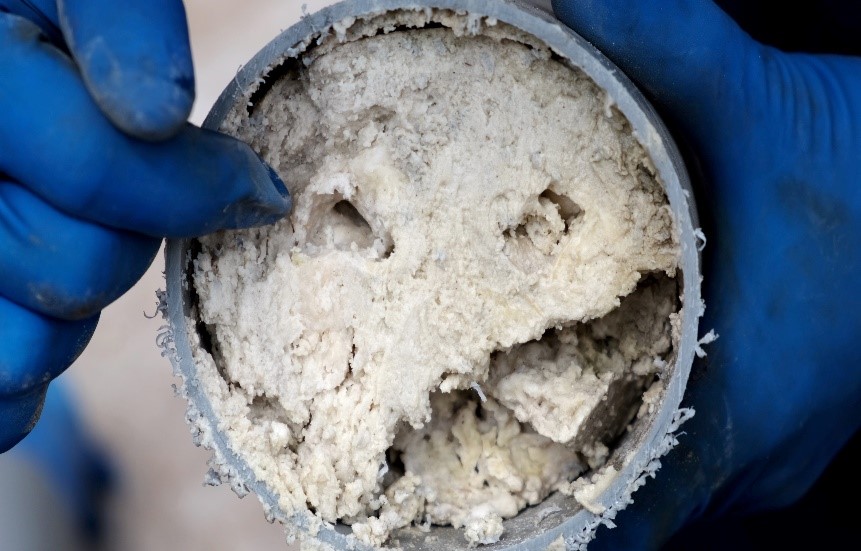Facts about fats, oils and grease
Fats, Oils, and Grease, known collectively as FOG can accumulate in a building’s private sanitary sewer lateral or a City-owned public sanitary sewer pipe in the street. FOG causes blockages in these pipes, as well as a potential sewage back-up into a property. When hot dishes and pans containing FOG are washed without properly removing food containing FOG, these materials harden downstream, causing blockages. Clogged pipes can result in sewer backups and spills, create environmental problems, cause traffic tie-ups or even flood homes and businesses. Commercial food-handling facilities contribute greatly to FOG buildup in sewer lines because of the amount of grease used in cooking and other food prep work. Preventing sewer backups from FOG blockages also saves money.
Tips for keeping FOG out of pipes

Why is it important to keep FOG out of the sanitary sewers?
Not practicing proper Fats, Oils and Grease prevention methods can hurt your business or house.

- FOG will harden in your sanitary sewer lateral, reducing the pipe's capacity and ability to operate properly and discharge the waste to the sanitary sewer.
- If not addressed early, FOG will result in sewage backups into your property, impacting the health and operation of not only the sanitary system of your business or house, but also for adjacent downstream properties.
- FOG can destroy your property’s interior plumbing, resulting in expensive repairs or a need for total replacement.
- FOG can shut off your dishwasher during a cycle and cause damage to the appliance.
Tips for businesses
- Strain or filter oil in deep fryers to extend the life of the cooking oil.
- Control the temperature of deep fryers to prevent oil from scorching and extend its life. Less oil in the grease interceptor means money saved in pumping and in new oil purchased.
- Recycle cooking oils and leftover grease into a storage container such as a barrel or bucket. Remember that grease is valuable — grease and oil can be recycled into other useful products. See your Yellow Pages for “grease traps” or “greases” to find grease collection companies or grease trap service providers.
- Instruct staff to be conservative about the use of FOG in food preparation.Don’t use your garbage disposal to grind up FOG and flush it down the drain.
- Use dry cleanup methods to reduce water consumption and save money.
- Remove FOG and food waste from pans by scraping or wiping before using water. Use rubber scrapers to remove FOG from cookware.
- Use absorbent paper to soak up FOG under fryer baskets.Use paper towels to wipe down work areas.
- Cloth towels will accumulate grease that will eventually end up in your drains when washing.
- Minimize the use of dish soap in dishwashing operations. Dish soap emulsifies FOG and enables it to pass through a grease interceptor. It will later coagulate in sewer lines.
- Maintain your grease trap. Many restaurants have a grease trap installed in the kitchen. In order to keep your grease trap working properly, you’ll need to have it cleaned periodically, according to the manufacturer’s specifications.
FOG handouts
Print and distribute the flyers below to stay informed about FOG. There are flyers in English, Spanish, Somali and Hmong.
- View the Fats, oils, and grease flyer
- View the Fats, oils, and grease flyer - Hmong
- View the Fats, oils, and grease flyer - Somali
- View the Fats, oils, and grease flyer - Spanish
Additional Information on the Management of FOG
We want to work with you to prevent FOG problems from affecting the community’s sewer system. The links below provide information about FOG and how it can be controlled to comply with regulations.

